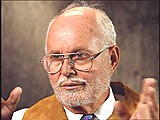You searched for: jewish prisoners
<< Previous | Displaying results 371-380 of 455 for "jewish prisoners" | Next >>
-
Irmgard Rosenberg
ID CardIrmgard was one of three children born to a Jewish family in the famous university city of Goettingen. The city had a small Jewish population, and only one synagogue. Irmgard's father, with his two brothers, owned a linen factory that had been founded by Irmgard's grandfather. Irmgard attended public school in the city. 1933-39: With the onset of the Depression in the 1930s, the family's factory went into decline. When the Nazis came to power in 1933, they confiscated the Rosenbergs' factory. Later, the…
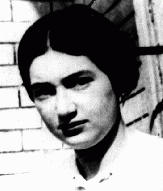
-
Morris Kornberg
ID CardMorris was the youngest of six children born to a religious Jewish family in Przedborz, a south central Polish town with a large Jewish population. Morris' family owned a business that supplied nearby factories with raw metal materials. 1933-39: When Germany invaded Poland in early September 1939 Morris and his family fled to the woods. They returned a few days later; most of the town had been burned down. The Nazis set up a ghetto and ordered everyone age 13 to 50 to report for work details. His family…
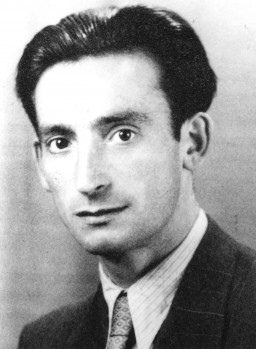
-
Pawel Wos
ID CardPawel, a Roman Catholic, fled to Danzig, Germany, in 1914 to avoid conscription in the Russian army. Since Germany and Russia were at war, Pawel was arrested by the Germans as an enemy alien and sent to work on a farm in northern Germany. He met Anna Szachowska there, and they married in 1918. The couple moved to Warsaw where they raised 4 children. In 1930 Pawel opened a textile business. 1933-39: Despite the Depression, Pawel's business prospered and they expanded their operations. In 1938 some friends…
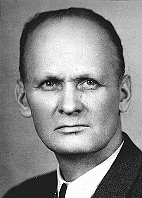
-
Edward Adler describes deportation to and arrival at the Sachsenhausen camp
Oral HistoryEdward was born to a Jewish family in Hamburg. In 1935, the Nuremberg Laws prohibited marriage or sexual relations between German non-Jews and Jews. Edward was then in his mid-twenties. Edward was arrested for dating a non-Jewish woman. Classified as a habitual offender, he was later deported to the Sachsenhausen concentration camp, near Berlin. He was forced to perform hard labor in construction projects. Edward had married shortly before his imprisonment, and his wife made arrangements for their…
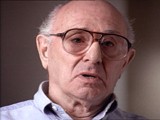
-
Leopold Page describes meeting German industrialist Oskar Schindler
Oral HistoryLeopold was a teacher in Krakow, Poland, when World War II began in 1939. While serving in the Polish army, he was captured by Germans. Leopold escaped from a prisoner-of-war transport. Soon after, he met the German industrialist Oskar Schindler. The two became friends. Leopold was forced to live in the Krakow ghetto. He later worked in Schindler's factory in Bruennlitz. He and the other Jews who worked there were treated relatively well and protected from the Nazis. After the war, Leopold moved to the…
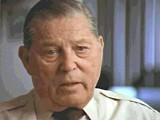
-
Bella Jakubowicz Tovey describes antisemitic remarks made as she was forced to march into the Graeben camp
Oral HistoryBella was the oldest of four children born to a Jewish family in Sosnowiec. Her father owned a knitting factory. After the Germans invaded Poland in 1939, they took over the factory. The family's furniture was given to a German woman. Bella was forced to work in a factory in the Sosnowiec ghetto in 1941. At the end of 1942 the family was deported to the Bedzin ghetto. Bella was deported to the Graeben subcamp of Gross-Rosen in 1943 and to Bergen-Belsen in 1944. She was liberated in April 1945.
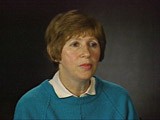
-
Ludmilla Page describes a celebration of Oskar Schindler's birthday in Bruennlitz toward the end of the war
Oral HistoryLudmilla was born to an assimilated Jewish family in Kishinev, Romania. She and her mother, a physician, were living in Poland when the Germans invaded on September 1, 1939. They were taken to Krakow. Ludmilla was forced to live in the Krakow ghetto; her mother was sent to the Warsaw ghetto. Ludmilla worked in a factory at the Plaszow labor camp for a businessman who was a friend of the German industrialist Oskar Schindler. In October 1944, Schindler attempted to save some Jewish workers by relocating them…
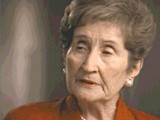
-
Invasion of the Soviet Union, June 1941
ArticleOn June 22, 1941, Nazi Germany invaded the Soviet Union. The surprise attack marked a turning point in the history of World War II and the Holocaust.
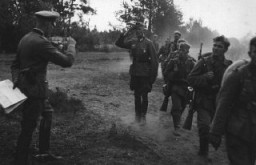
-
The Immigration of Refugee Children to the United States
ArticleMore than one thousand unaccompanied refugee children fleeing Nazi persecution arrived in the United States between 1933 and 1945. Learn more
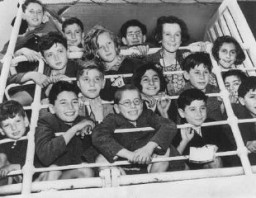
-
Walter Meyer describes his 1943 trial for looting, and the impact of his role in the Edelweiss Pirates on the sentence he received
Oral HistoryWalter was born in Kassel, north central Germany, but grew up in the Rhineland. As a youth, Walter questioned the German superiority and antisemitism he was taught. His father, an anti-Nazi, refused to allow Walter to enter one of the Adolf Hitler Schools, but did permit him to join the Hitler Youth. However, Walter's rebellious streak led him to hide a Jewish friend in his basement. He also formed a gang that played pranks on young Nazis and helped French prisoners of war. They called themselves Edelweiss…
